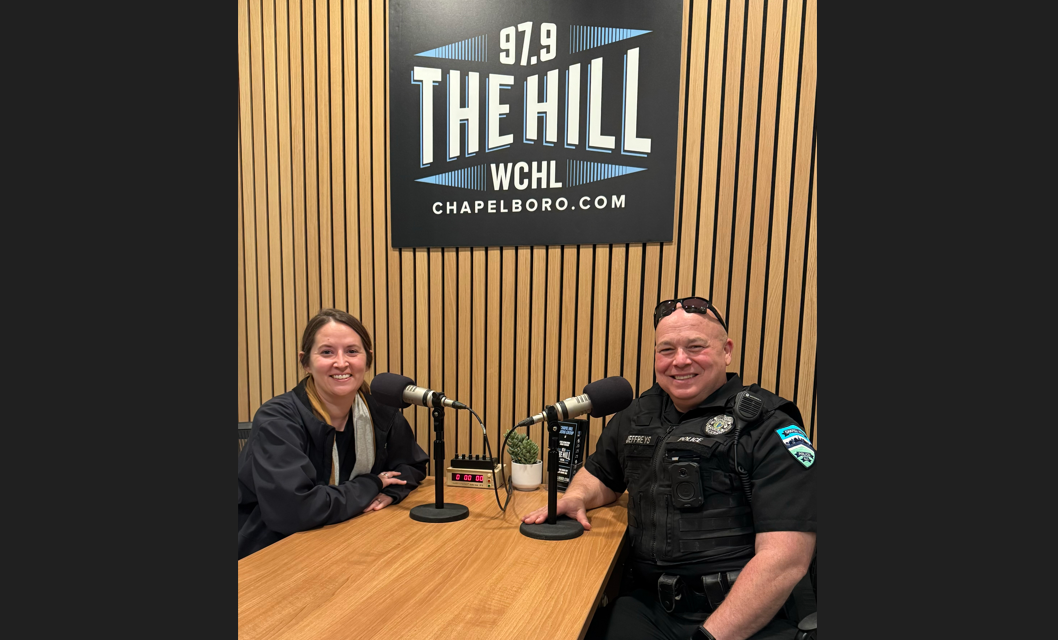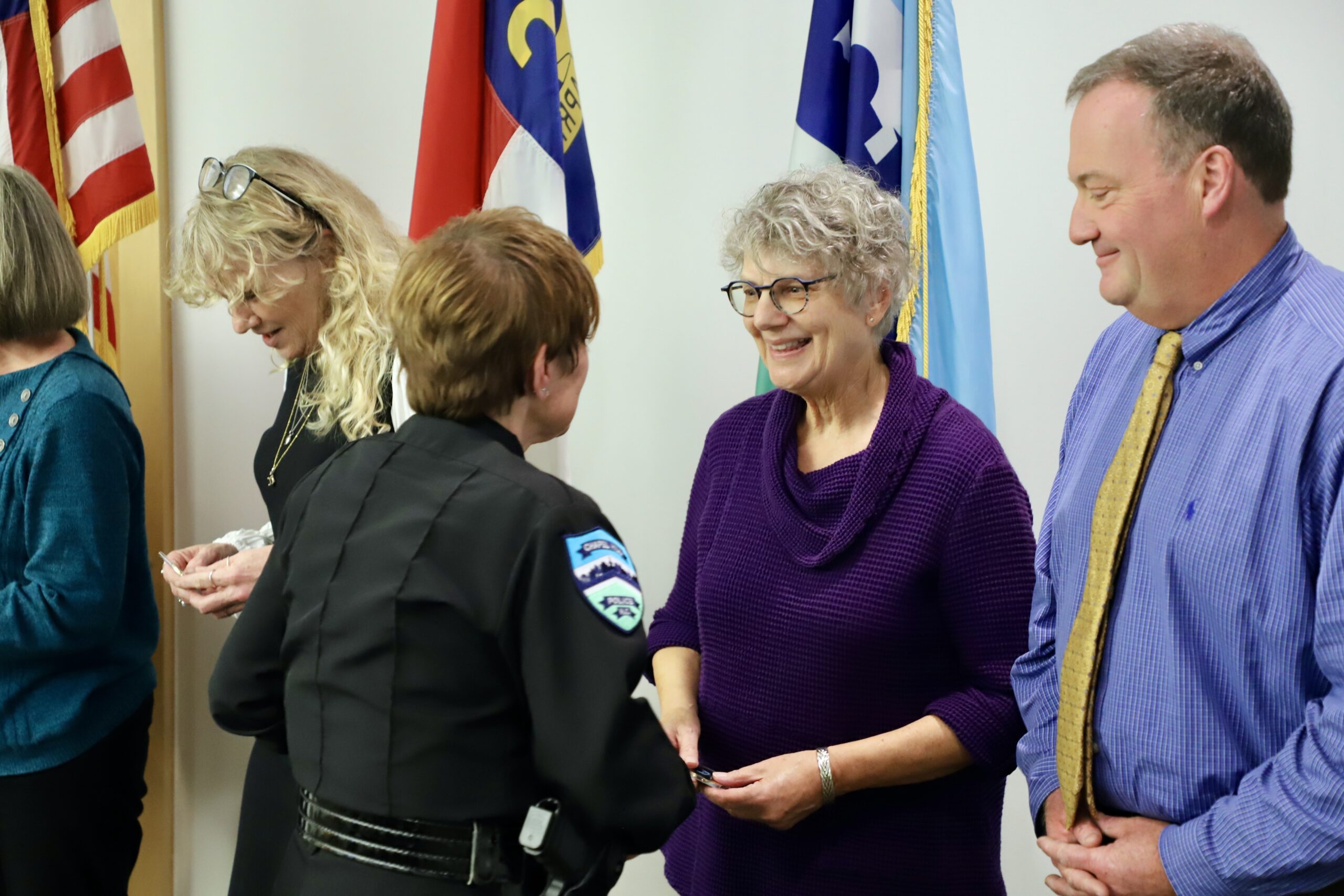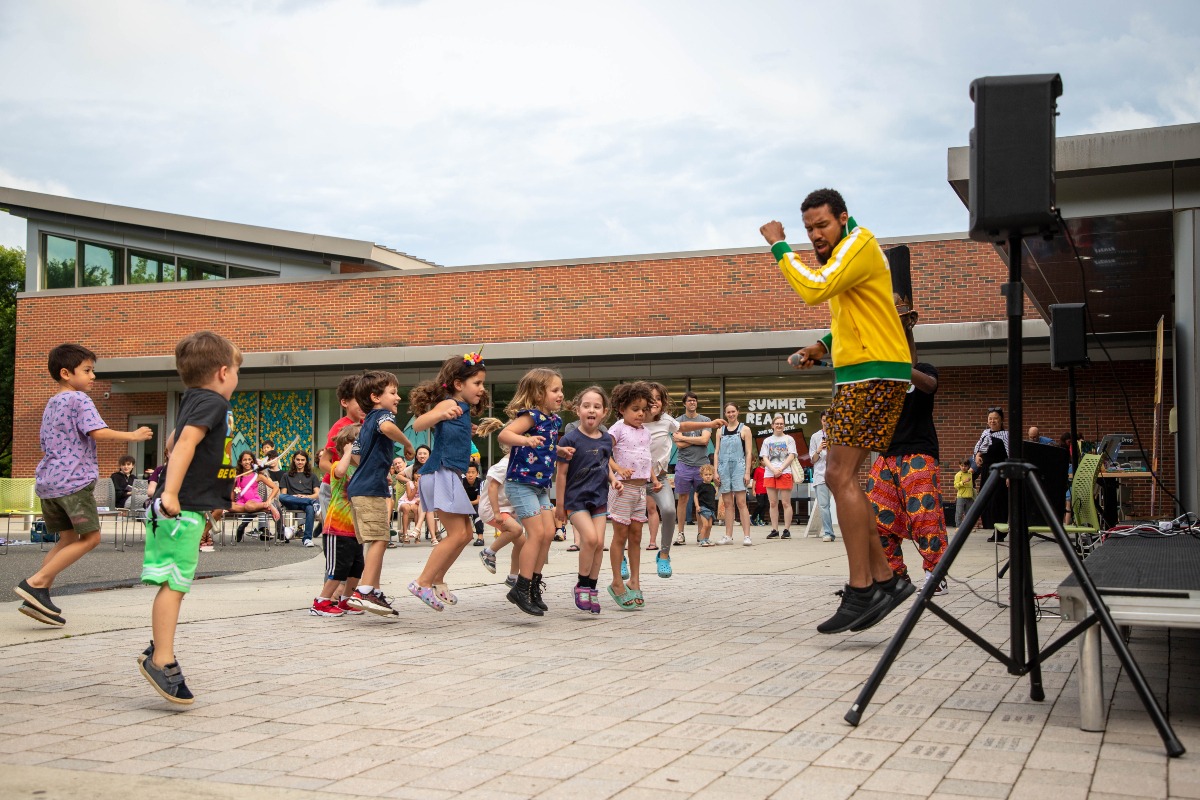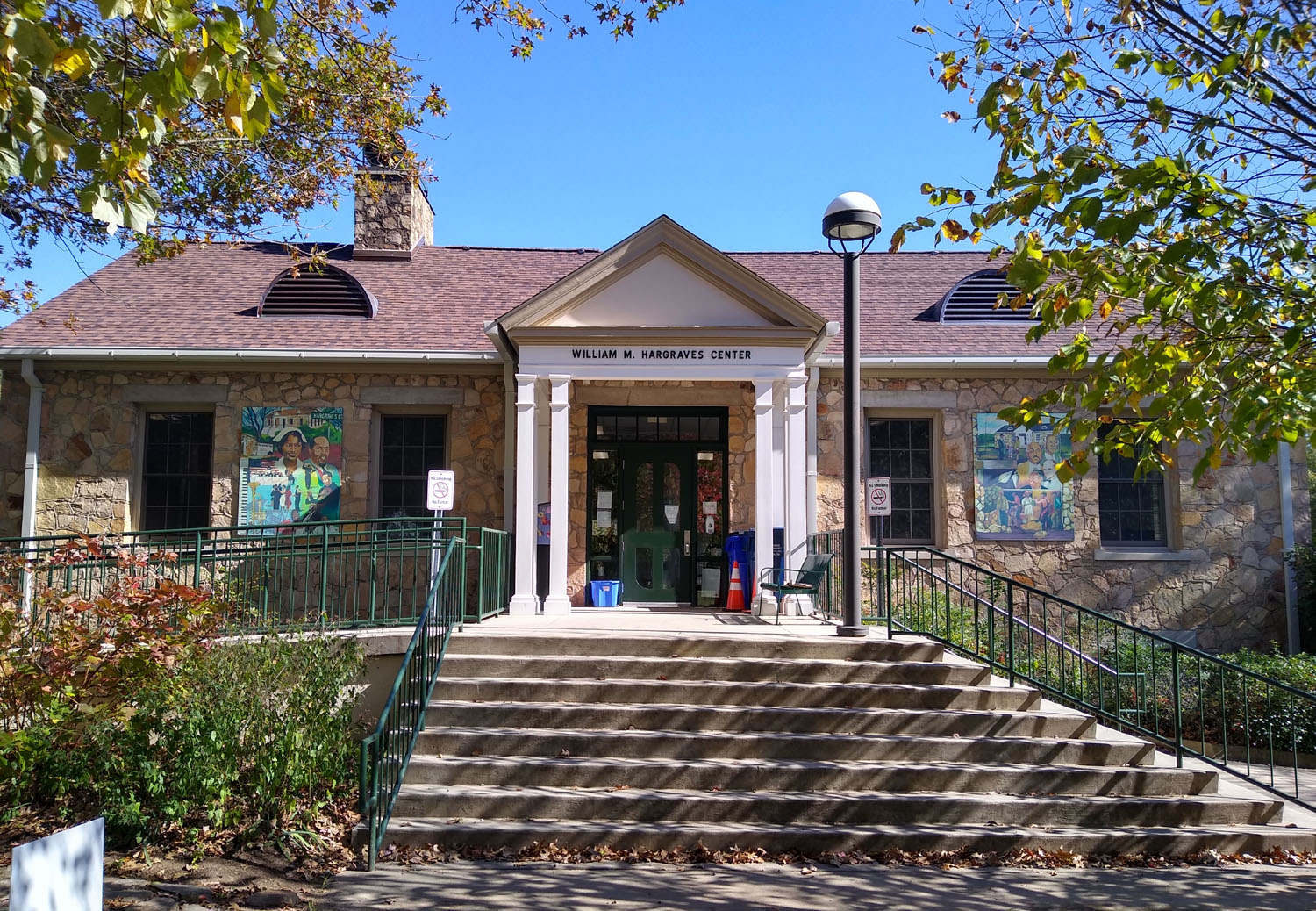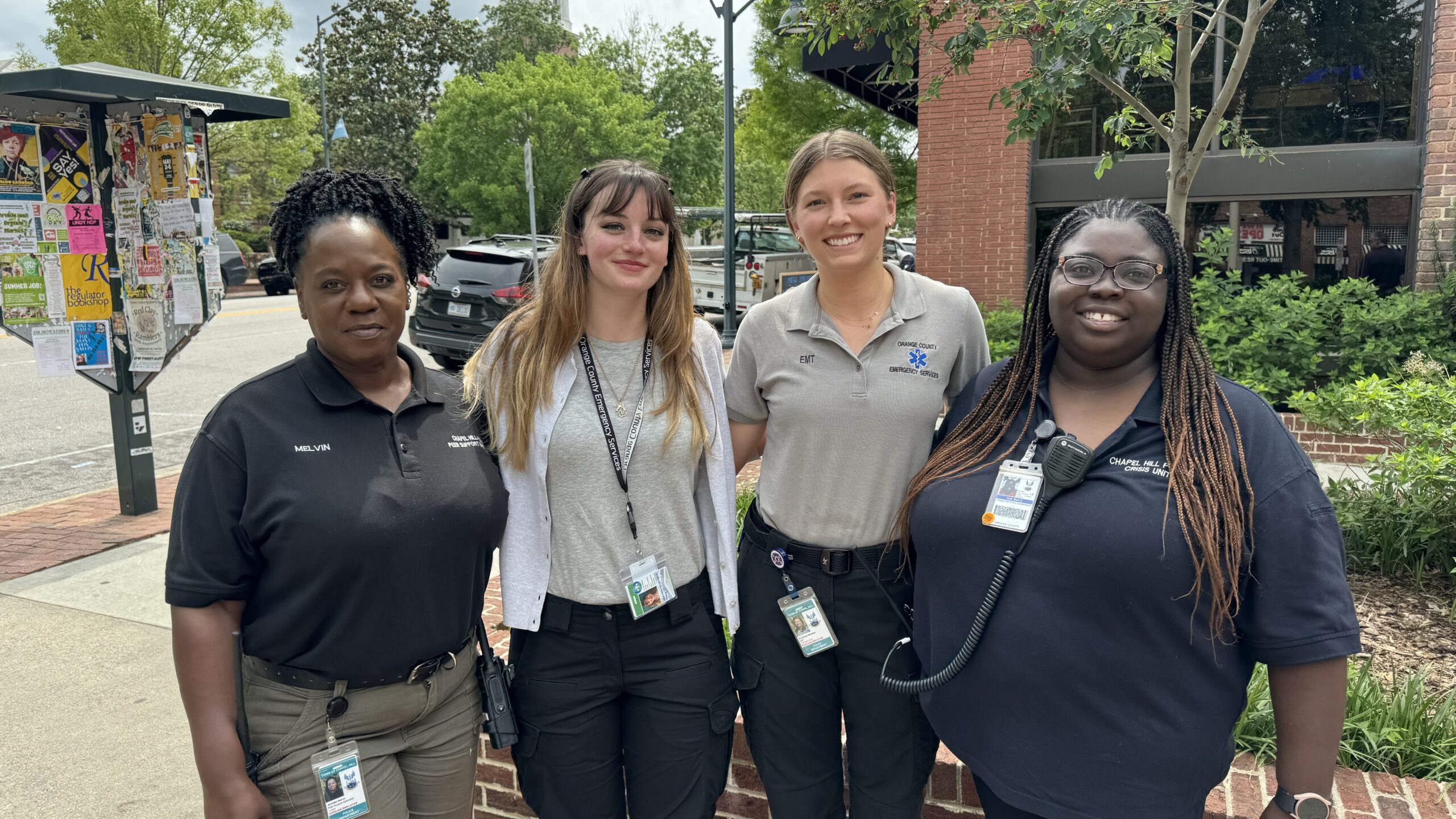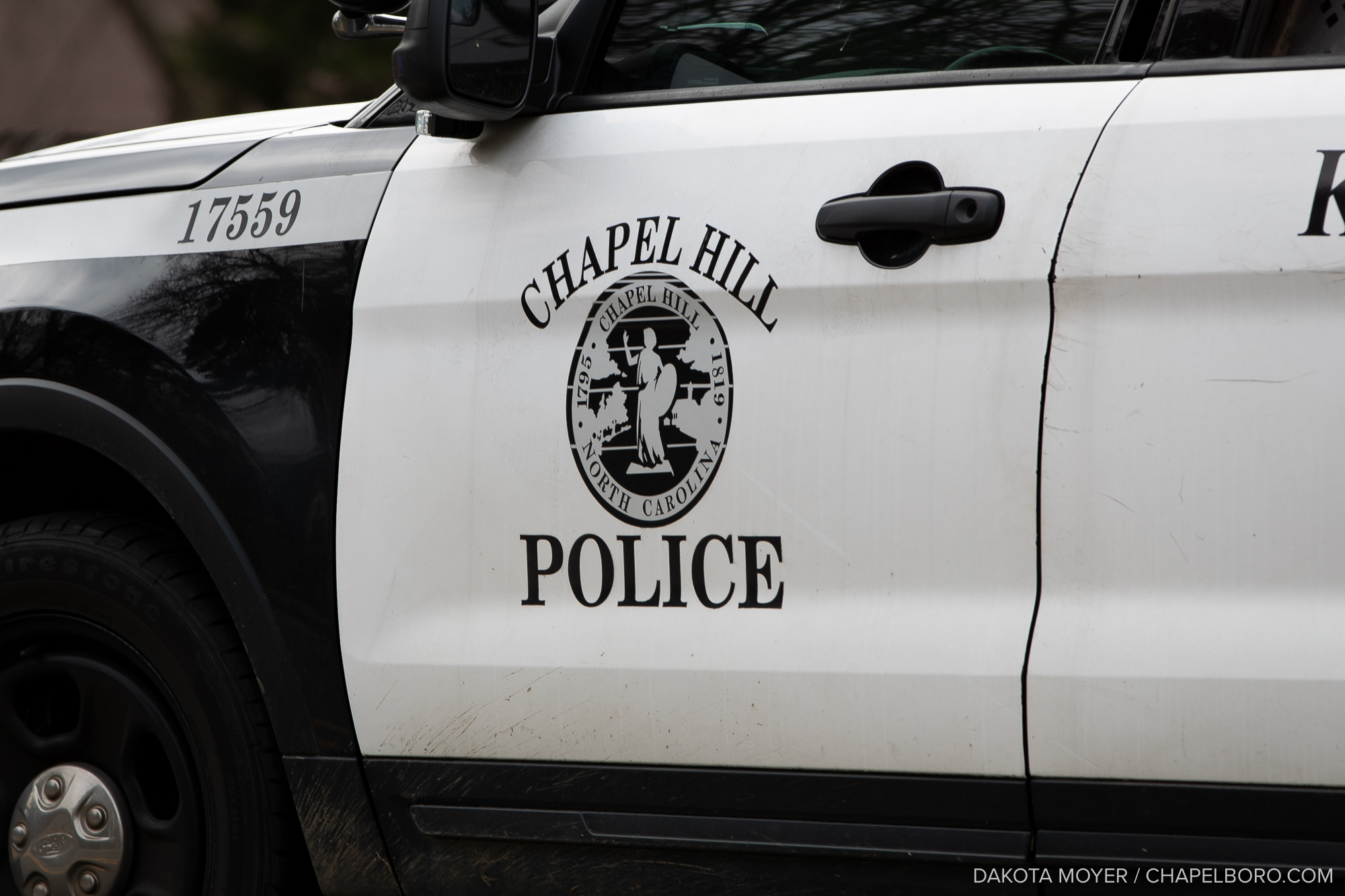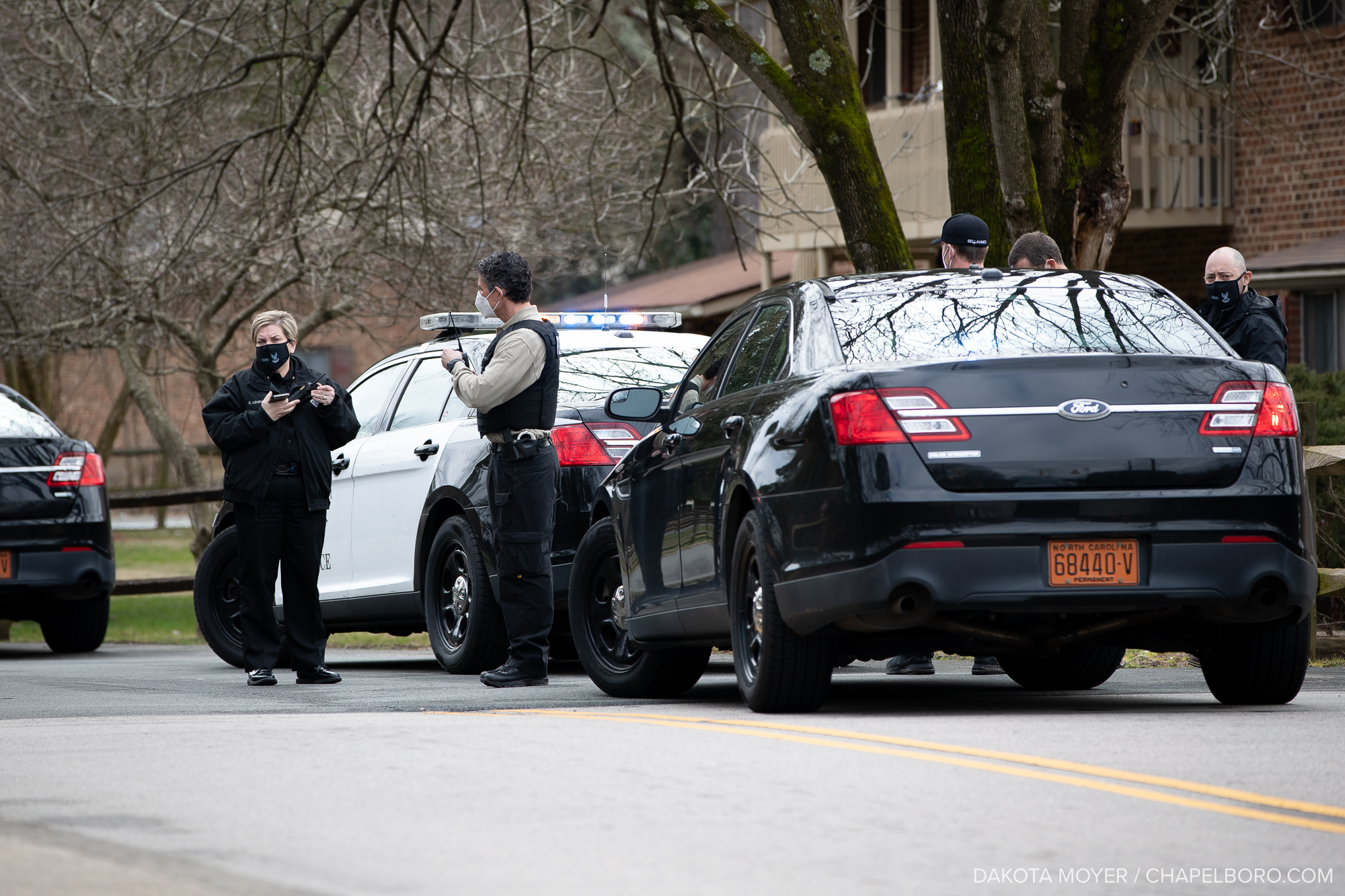The Town of Chapel Hill in collaboration with 97.9 The Hill WCHL & Chapelboro.com present “Our Town: Stories of Chapel Hill.” Each month you’ll hear from the people at the heart of your local government who are learning, serving, and working together to build a community where people thrive. This month, Chapel Hill Crisis Unit Supervisor Sarah Belcher and Chapel Hill Police Officer Tony Jeffreys tell the story of Community Policing in Chapel Hill.
Officer Tony Jeffreys: Community policing in Chapel Hill is trying to get at the core issues of why people are struggling, trying to get them in touch with services within the community, and typically we will reach out through our crisis unit.
Crisis Unit Supervisor Sarah Belcher: We (Chapel Hill) have had a crisis unit since 1973. A lot of the things that are coming to our attention, the 911 calls that we get when a person is in crisis, when we respond, what we’re finding is that these presentations or what’s happening in the moment is a symptom of something bigger. And so bringing in the resources to help address is this a mental health crisis? Is this somebody who’s going through a traumatic experience?
Jeffreys: It is a tremendous help to us to be able to reach out to our crisis unit because they have a great deal of experience and training in people’s mental health.
Belcher: A big part of community policing in Chapel Hill is co-response by our officers and our crisis unit. Co-response is an officer and someone who has some mental health training responding jointly to emergency crisis situations.
Jeffreys: Most of the calls that we go to are not criminal. It’s good for us to have the resource of the crisis unit because we have tools in our belt to use other than writing somebody a citation or arresting them. It is a positive thing to be able to take someone who may be homeless because of either mental illness or drug addiction and be able to get them in contact with the crisis unit or other resources in the community to help them get into a better place in their life.
Belcher: I think that’s where co-response is really at the heart of this, it really is about wrapping folks with those supports.
Jeffreys: Another part of community policing in Chapel Hill is relationship building. If people trust us and know that we treat their complaints with respect, they will call us when they see things in their neighborhood because they live there. It’s crucial that we have that kind of trust and respect with the community.
Belcher: I have a great example of a time that I’ve seen Tony (Officer Jeffrey’s) relationship building in action. Following a serious event that that took place within our community. Tony and I both went out to do some outreach and connection with the community and during that outreach, and it was on a weekend, there were neighbors and community members that were outside cooking out. There were kids playing, and we were driving through, handing out these flyers, and people just started approaching Tony’s car and coming up to his window and saying, “Hey!” and these are folks that are longtime members of our community that Tony has built really strong relationships throughout time. Not only that, but just watching Tony get out of the car and throw the football around with the kids in the neighborhood, it was just something really special. And I think that’s what iso great about community policing and this job. It’s a real currency exchange, and I can’t take credit for that, somebody had shared that with me before, but it’s a currency exchange where we may be coming out and offering a service and giving support, but we’re always taking something with us. We’re taking, we’re being able to witness somebody’s strength or resilience through these relationships that we’re fortunate enough to be able to make with our community members.
Jeffreys: Another part of community policing in Chapel Hill is making sure that we are at our best so we can give our best. We’ve had a crisis unit for 50 years now. In recent years, we’ve also had the crisis unit be able to take an internal look and help us as police officers, because this is a tough job some days, and it’s always good to have somebody that we respect to talk to.
Belcher: Over the years, we’ve really looked at building more upon our peer support. We brought in a wellness coordinator, so this is someone that is focused on providing supportive resources and it’s a real holistic approach. It’s not just mental wellbeing, but it’s physical wellbeing, nutritional, financial, all the things for officers, but also for professional support staff and our families. There’s a saying that you can’t give from an empty well, and so with this wellness program, and really paying attention to taking care of ourselves, we’re filling our wells back up so that we can give to other folks.
Sign up for Our Town, a weekly email with cool stories like this and all the latest news from the town.
Chapelboro.com does not charge subscription fees, and you can directly support our efforts in local journalism here. Want more of what you see on Chapelboro? Let us bring free local news and community information to you by signing up for our newsletter.

